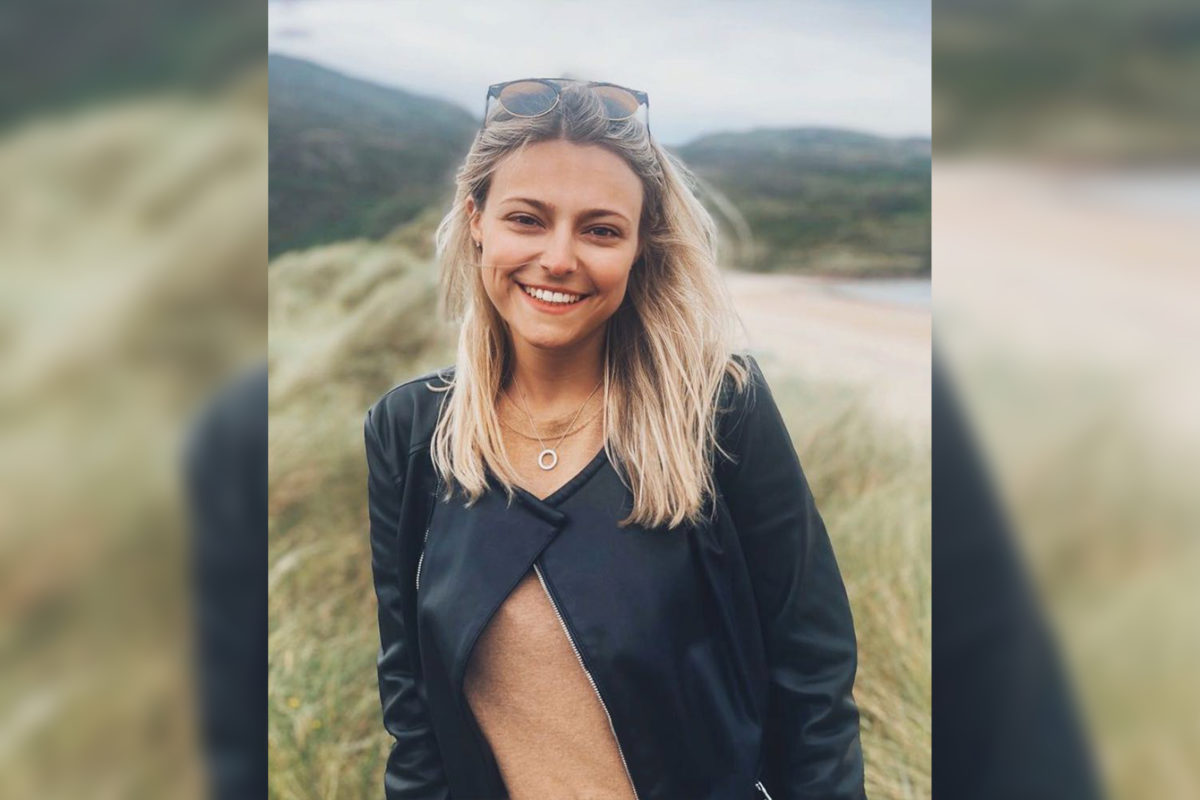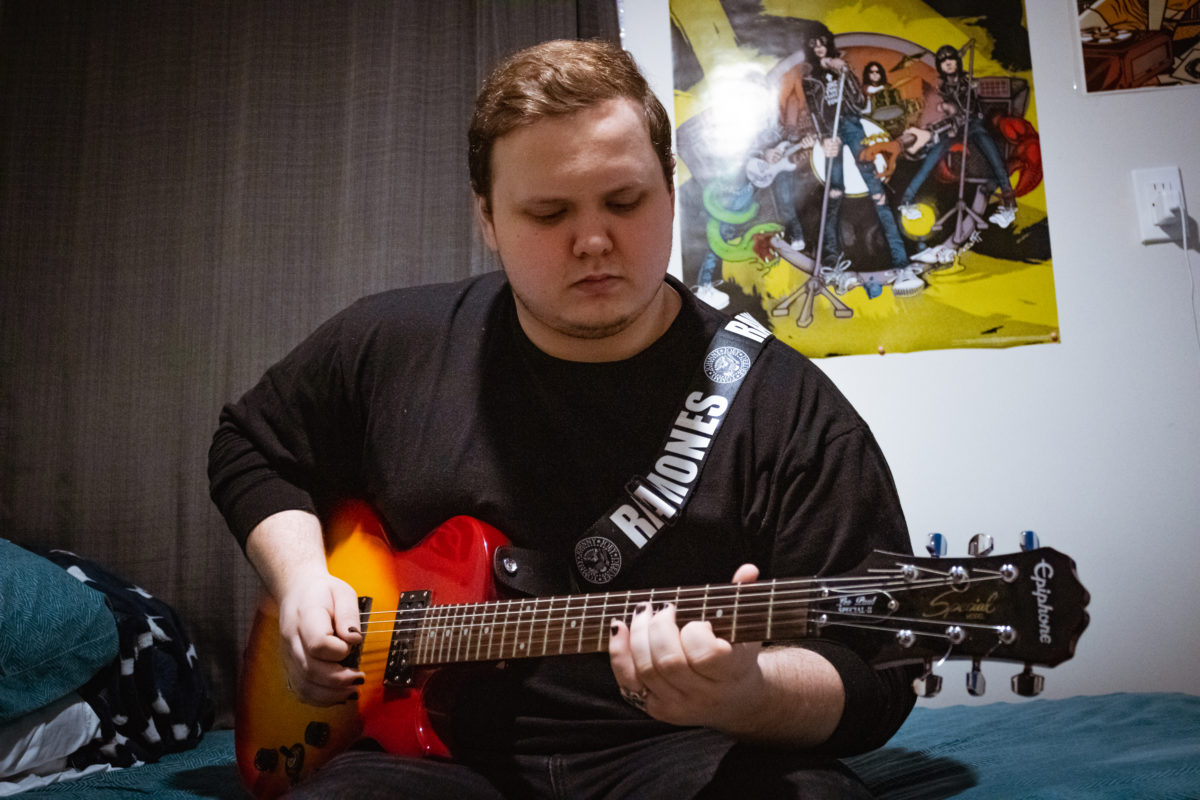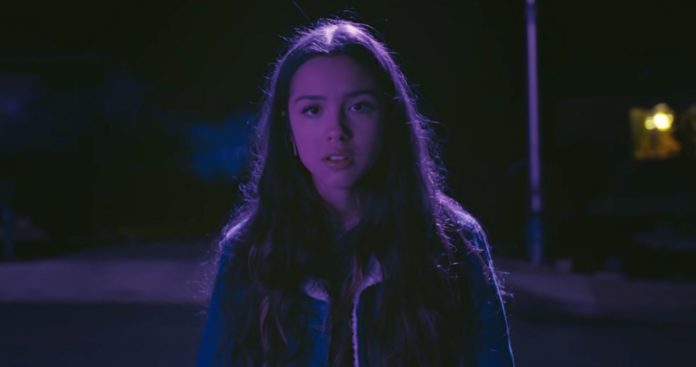Olivia Rodrigo’s song, “Drivers License,” became an overnight sensation since its number-one debut on the Billboard Global 200 chart.
Chiara Nannucci, a fourth-year St. Thomas University student, said every video on the social media app TikTok plays the song.
“People are always talking about the song, so you got really familiar with it. You are always listening to it or reading about it,” said Nannucci. “It’s not the best song ever, but it is catchy and it’s everywhere.”
Nannucci, a psychology student, said she believes the mere exposure effect played a role in the song’s popularity.
The mere exposure effect is a psychological phenomenon where someone develops a liking for something after being exposed to it too many times. Nannucci said the song saturated TikTok and the drama around the song’s alleged inspiration has been the top story on multiple entertainment news sources.
“Drivers License” is about the heartbreak Rodrigo, 17, experiences after Joshua Bassett, 20, leaves her for an older woman, who’s referred to as “that blonde girl” in the song. After their breakup, Rodrigo sings about driving through the suburbs, crying because they’re not together anymore.
“It’s the first break up,” said Nannucci. “Somebody breaks your heart or somebody ends up with someone else, so it’s definitely relatable.”
What makes the drama around the song interesting is that many have speculated that the “other girl” in the song is Sabrina Carpenter, another Disney Channel and TikTok star, according to Entertainment Tonight.
“It really feels like going back and being 14 and this is so entertaining maybe because with COVID everything is so boring,” said Nannucci.

Carpenter released her own song, “Skin,” on Jan. 22. Many speculate the song is a response to “Drivers License.” But Carpenter’s song sparked controversy, as she is nearly four years older than Rodrigo and some think that she should have behaved with more maturity. Fans have also pointed to some of the suggestive languages in the song as inappropriate for the younger demographic that uses TikTok, such as, “To get under my, under my, under my skin. Whilе he’s on mine. Yeah, all on my, all on my, all on my skin.”
Nannucci said she feels that whoever listens to the song would have to pick a side between these two girls.
“Both songs [are] even more popular, but you cannot like both. You got to pick, like an Edward and Jacob kind of situation,” said Nannucci.
Still, both songs have found popularity in mainstream music aside from TikTok. “Driver’s License” has been streamed over 17 million times on Spotify. Nannucci said she sees the success of the song as a positive aspect for the new generation of music.
She said she thinks if TikTok didn’t exist, the song wouldn’t be popular. But she also said TikTok is levelling the playing field for artists.
Nannucci said TikTok gives people who aren’t famous and have a decent voice a chance to become famous.
But Marcel Chamorro, a third-year STU student and music fan, disagrees. While he likes Rodrigo’s song, he thinks that TikTok has a negative impact on independent musicians and bands.
“I think TikTok has been a good way for some songs to get known but retrospectively. I also think the variety of the songs that come up on TikTok isn’t wide,” said Chamorro.


He said while the platform gives artists opportunities to be famous, the music genres popularized on the app are either pop or rap.
“It’s a good way for upcoming pop and rap artists to get in the game, but it’s hurting a lot more independent and alternative music artists, in my opinion,” said Chamorro.
He said that bands or artists that don’t choose to use TikTok miss out on some of that fame. He said when it came to indie artists, TikTok didn’t “take care of those artists.”
Chamorro said he didn’t have high expectations for “Drivers Licence,” but was pleasantly surprised despite his bias against pop songs.
Like Nannucci, Chamorro said the song was popular because it’s relatable.
“Everyone’s had love problems like at least once in their lives,” he said.
As for the “clap back” song from Carpenter, which has now made both songs even more popular, Chamorro thinks it actually reduced the quality of music created.
“When it starts becoming less about the music and more about trying to get back at others, that’s where the music quality drops,” said Chamorro.

